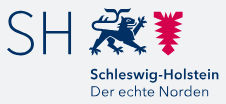| One State's Quest For Digital Sovereignty |
| Written by Nikos Vaggalis | |||
| Friday, 03 May 2024 | |||
|
The news is that the German State is moving 30,000 PCs to LibreOffice. Why is this of significance? That's not the first attempt of the German State to break free of vendors by adopting open source software. We've recently witnessed another attempt in "Is The German State In Love With OSS?" in which the State adopted openDesk, the open source alternative to Microsoft's and Google's office applications. Using openDesk, employees, IT administrators and public transport operators would have an effective open source based alternative in the workplace environment, allowing the state to cut costs by not being held hostage in paying absurd amounts of fees to big corp software packages.
This new attempt of moving to LibreOffice is putting yet another stone on the path to the State's digital sovereignty campaign. Specifically, the federal state of Schleswig-Holstein has decided to move from Microsoft Windows and Microsoft Office to Linux and LibreOffice, starting with the migration of 30K PCs. The official statement explains the rationale of the move: With a cabinet decision to introduce the open-source software LibreOffice as a standard office solution across the board, the government has given the starting signal for the first step towards complete digital sovereignty for the country, with further steps to follow. Ensuring digital sovereignty is at least as important as energy sovereignty. This cannot be achieved with the current standard IT workplace products and the switch to open source solutions is an important building block towards maintaining digital sovereignty. The use of open source software also benefits from improved IT security, cost-effectiveness, data protection and seamless collaboration between different systems. That mentality aligns with the initiative of the Government's Sovereign tech fund for open source software, which aims to strengthen the important role that software plays in modern society, as we found out in "The German Government's Sovereign Tech Fund For OSS": The Sovereign Tech Fund started life in October 2022, financed by the German Federal Ministry for Economic Affairs and Climate Action and has a lot to spend; 11.5 million EUR for 2023 alone. It's goal is to sustainably strengthen the open source ecosystem, focusing on security, resilience, technological diversity, and the people behind the code. As such since October 2022 has allocated funds to projects like curl, Drupal, Fortran, the Python Package Index, OpenPGP. js/GopenPGP , OpenSSH, etc. From that list of projects it is evident that the Fund does invest in projects that benefit and strengthen the open source ecosystem; package managers, open implementations of communication protocols, administration tools for developers, digital encryption technologies and libraries for programming languages. It doesn't just focus on the security aspect of OSS but adopts a general outlook on aspects like maintenance, documentation, usability, reliability or bug fixes. Without underestimating those aspects the most important would certainly be Security. To that respect, there's yet another initiative that spanns beyond a single state and government and is encompassed by the European Commission itself, as we examined in "European Union Will Pay For Finding Bugs In Open Source Software". What better way of acknowledging OSS's importance than by a state-driven sponsorship? This time the EU pays for finding security vulnerabilities in LibreOffice, LEOS, Mastodon, Odoo and CryptPad, with an added 20% bonus for providing a code fix for the bugs discovered. The criteria for choosing the particular applications were based on their actual use. All of them are open source solutions used by public services across the European Union. In the end it boils down to our proposition of treating "Software Security as a Civil Right", made back in 2019 due to FOSSA: This EU initiative is part of the Free and Open Source Software Audit (FOSSA) project, thanks to Julia Reda MEP of the EU Pirate Party, who started the project thinking that enough is enough after severe vulnerabilities were discovered in key infrastructure components like OpenSSL. This prompted her to involve the EU Commission in contributing to the security of the Internet. Schleswig-Holstein will not stop there though. The change in office software is a milestone, but only the start of the change: the switch to free software Operating System, collaboration platform, directory service, specialist procedures and telephony will follow. In addition to open-source software development, the aim is also to release the country's future development results under free licenses. Open everything, open to all. More InformationOfficial announcement in German Official announcement auto-translated to English Related ArticlesIs The German State In Love With OSS? The German Government's Sovereign Tech Fund For OSS European Union Will Pay For Finding Bugs In Open Source Software Software Security as a Civil Right
To be informed about new articles on I Programmer, sign up for our weekly newsletter, subscribe to the RSS feed and follow us on Facebook or Linkedin.
Comments
or email your comment to: comments@i-programmer.info |
|||
| Last Updated ( Friday, 03 May 2024 ) |



